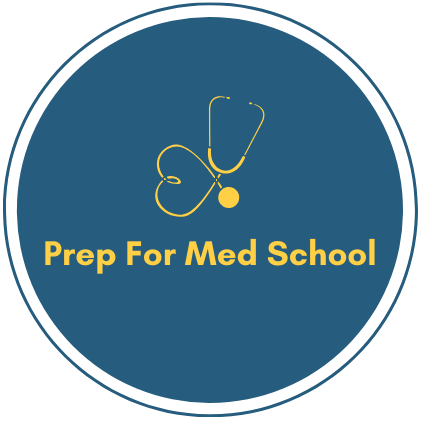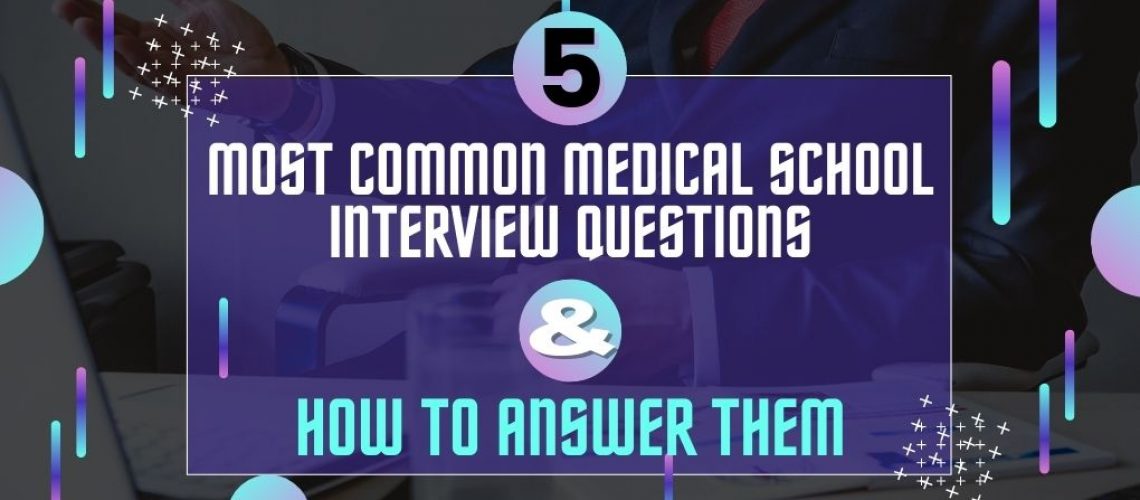After submission of your medical school application through AMCAS (American Medical College Application Service), you will be offered the invitation to interview. It is recommended to apply to a wide breadth of schools throughout the country, as the medical school application process is often a mystery.
What stands out and what turns off a medical school admissions officer is difficult to determine. Here are some common questions that come up during the interview, and some advice on how to tackle them.
Question 1: Why Medicine?
The most dreaded question of them all! This is the crux of your personal statement and all the supplementary admissions essays. The best approach? Be vulnerable and honest.
Differentiating yourself is a matter of painting a memorable picture. Talk about that turning point that made you realize medicine was for you. Was it an individual? A trip overseas? It’s that phenomenon that the more specific you are with your story, the more you will connect with an audience.
Consider applying this piece of advice to your personal statement as well.
Question 2: Where do you stand on healthcare/ethics/politics?
Even though you are applying to medical school, there are so many topics that affect how you practice medicine in the future. These topics are all fair game during your interview.
Do your homework. Be able to defend your position, but as is the case when discussing sensitive topics such as these, ensure that you stay politically correct. It’s best to display knowledge and breadth of understanding, rather than spar with the admissions interviewer.
Question 3: Name one strength and weakness.
This question is one to prepare for in advance, especially for your weakness. Make a strong effort in determining one that you have the ability to remediate, and have clear methods on how you are overcoming your weakness. Here are some examples of weaknesses:
- Procrastination
- Scheduling every hour of the day to keep on track
- I study with a friend to keep myself accountable for the information
- Difficulty processing emotions resulting in difficulty concentrating in my studies
- Going to a therapist weekly to unpack my thoughts
- Journaling daily
- Finding time to destress or to continue hobbies
- Joined a gym and have been attending classes regularly
- Started learning an instrument
- Sometimes too competitive
- Working on it with a colleague and continually asking for feedback on how you work within a team-setting
Question 4: What type of medical schools are you applying to, and why?
Yes, there are different types of medical schools! First, the big difference – allopathic vs. osteopathic.
Allopathic provides the traditional medical curriculum and ends with a doctor of medicine degree (MD). Osteopathic medicine supplements the standard curriculum with touch-based methods that improve musculoskeletal maladies/complaints.
Other differences include location, how large your medical school is, and the way your years are split between clinicals and in-class education.
For every interview, make a case of why this medical school will be a great fit for you. This question takes a bit of extra leg work, so be prepared to scour through the website and get a feel of the curriculum of that particular medical school.
Not a question…but make sure you’re armed with some questions too!
Nothing is worse than a conversation that’s one-sided. Come ready with questions for the admissions officer. This can range anything from questions about the school, questions about their research/specialty/etc., or just a random question you have!
Pro tip: when you get your agenda for the day – do some snooping and find out the background of your interviewer. Perhaps you can connect with a commonality you were previously unaware of.
It is also good to have some generic questions up your sleeve. One question from a fellow colleague that I fell in love with was to ask the interviewer what book they recommended for summer reading prior to going to medical school.
The Thank You Letter
My last piece of advice is the thank you letter. Some people send emails after their interview but think of the impact of a handwritten, mailed, thank you card.
I brought around a whole box throughout the interview process and wrote most of the letters before arriving at the interview. I added a couple of personal sentences that pertained to that particular interviewer before sending it off in a mailbox near that prospective medical school.
What a way to show your interest in the school by going that extra mile!
Best of luck while you get through the medical school applications process!




